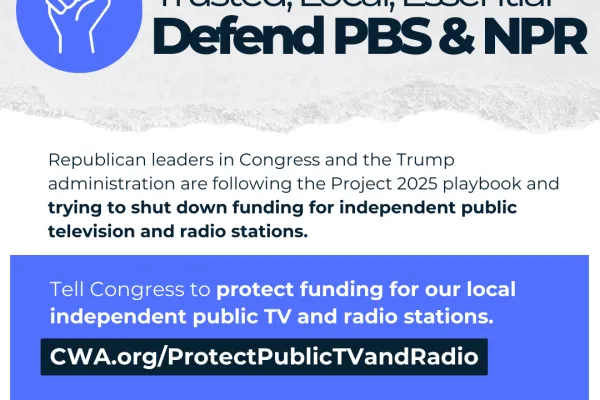How the PRO Act Will Help Us Bargain Stronger Contracts

Although current federal law requires companies to bargain in good faith with the union chosen by their employees, CWA members know all too well the tactics employers use to drag out the bargaining process.
This is especially true when workers are fighting for their first contract. By failing to negotiate fair first contracts, employers prevent workers from realizing the full power of their union.
Recent rulings from the Trump NLRB mean that established collective bargaining agreements are at more risk than ever. The new rules allow an employer, within 90 days of contract expiration, to claim that the union no longer has majority support, stop bargaining, and announce it will withdraw recognition of a union when the contract expires.
The PRO Act addresses these problems. It establishes a process for reaching a first agreement when workers organize, employing mediation, and then, if necessary, binding arbitration, to enable the parties to bargain successfully.
Once workers have a contract, the PRO Act protects that agreement by requiring employers to maintain existing terms and conditions of employment while the contract is being renegotiated. This prevents employers from gridlocking the bargaining process and unilaterally implementing new terms or conditions of employment while bargaining is pending. The PRO Act would also eliminate employers' ability to withdraw union recognition during bargaining by overturning the Trump NLRB's rule.
Finally, this monumental bill would facilitate the establishment of a "fair share" clause between employers and unions to require all workers who are covered by the collective bargaining agreement to contribute a fair share fee towards the cost of bargaining and administering the agreement, even in so-called "right-to-work" states.
Tell your Senators to support the PRO Act at actionnetwork.org/letters/senateproact.

